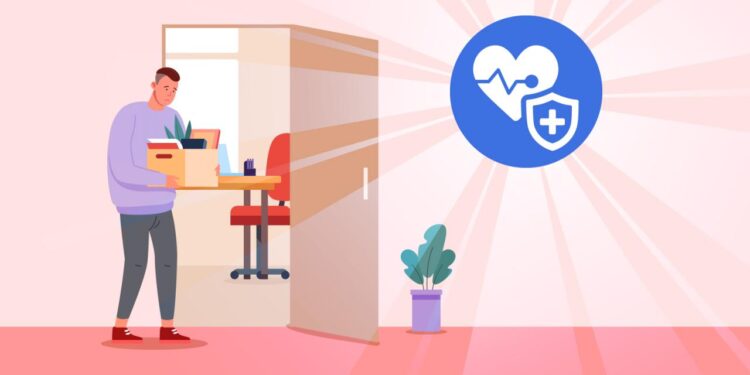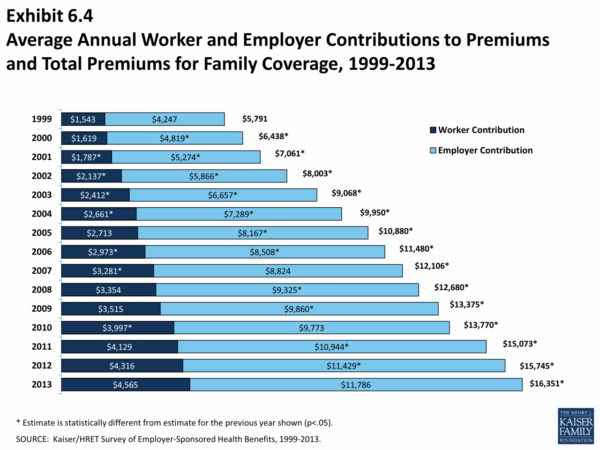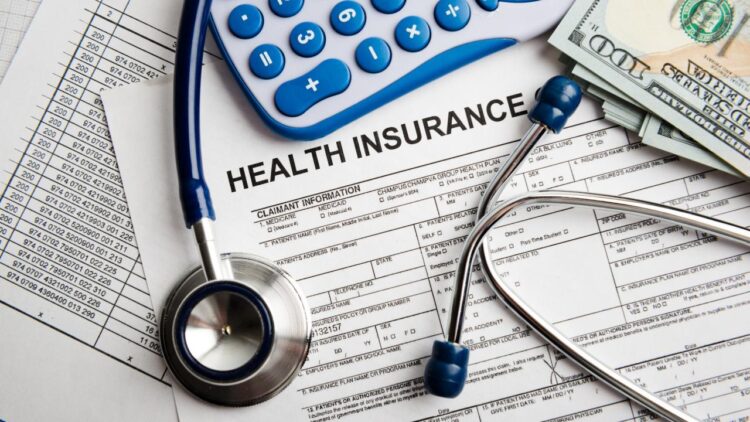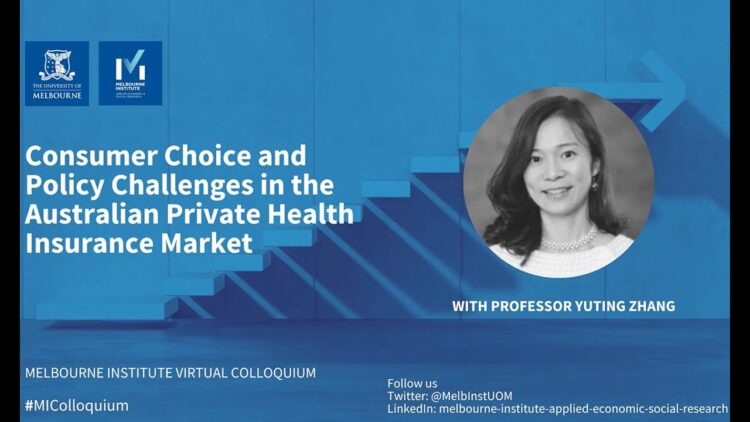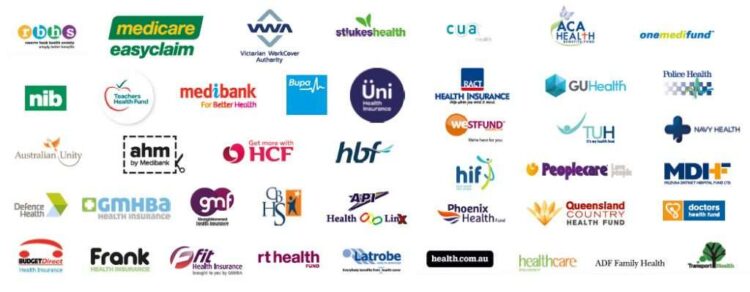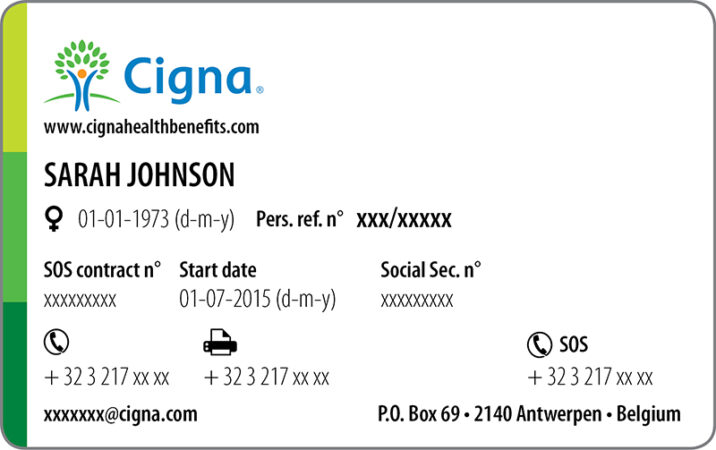
- Eligibility for Government-Funded Health Insurance
- Unemployment Benefits and Health Insurance
- Affordable Care Act (ACA) Marketplace Options
- COBRA Continuation Coverage
- Short-Term Health Insurance Plans
- Community Health Centers and Free Clinics: Can You Get Free Health Insurance If You Are Unemployed
- State-Specific Programs and Resources
- Ending Remarks
- Commonly Asked Questions
Can you get free health insurance if you are unemployed? This question is a pressing concern for many Americans who find themselves out of work and without employer-sponsored health insurance. Losing a job can be a stressful event, and navigating the complexities of healthcare access adds another layer of worry. Fortunately, several resources and programs exist to help individuals maintain health insurance coverage during unemployment, including government-funded programs, marketplace options, and community resources.
This guide explores the various avenues for obtaining health insurance when unemployed, providing a comprehensive overview of eligibility requirements, program details, and available resources. We’ll delve into programs like Medicaid and CHIP, examine the Affordable Care Act (ACA) Marketplace, and discuss the benefits and drawbacks of COBRA continuation coverage and short-term health insurance plans. We’ll also explore community health centers and free clinics as potential sources of affordable or free healthcare services. By understanding the available options, individuals can make informed decisions about their health insurance coverage during unemployment and ensure access to essential healthcare services.
Eligibility for Government-Funded Health Insurance
In the United States, several government-funded health insurance programs provide coverage to individuals and families who meet specific eligibility criteria. Two prominent programs are Medicaid and the Children’s Health Insurance Program (CHIP). These programs are designed to ensure access to healthcare for low-income individuals and families.
Eligibility Criteria for Medicaid and CHIP
Eligibility for Medicaid and CHIP is determined based on income, family size, and other factors. These programs have income requirements and asset limits that individuals must meet to qualify.
Income Requirements
Medicaid and CHIP have income limits that vary by state. To be eligible, an individual’s income must fall below a certain threshold, which is typically set at a percentage of the federal poverty level (FPL). The FPL is a measure of poverty in the United States, adjusted annually based on family size.
For instance, in 2023, the FPL for a family of four is $27,750. To be eligible for Medicaid in a particular state, an individual’s income may need to be below 138% of the FPL, which would be $38,295 for a family of four.
Asset Limits
In addition to income requirements, Medicaid and CHIP also have asset limits. These limits vary by state and typically restrict the value of assets an individual can own to be eligible for the programs.
For example, some states may limit the value of a person’s car, house, or savings account.
Applying for Medicaid and CHIP
Individuals can apply for Medicaid and CHIP through their state’s health insurance marketplace or directly through their state’s Medicaid agency. To apply, individuals will typically need to provide the following documentation:
- Proof of identity (e.g., driver’s license, birth certificate)
- Proof of income (e.g., pay stubs, tax returns)
- Proof of citizenship or legal residency
- Proof of family size (e.g., birth certificates, adoption papers)
The application process may vary by state, and individuals should contact their state’s Medicaid agency for specific instructions.
Unemployment Benefits and Health Insurance
Unemployment benefits are a crucial lifeline for individuals who have lost their jobs, providing financial support during a difficult period. However, the relationship between unemployment benefits and access to health insurance is complex and can vary depending on the specific program and state regulations.
Health Insurance Coverage Through Unemployment Benefits
Unemployment benefits themselves do not typically cover health insurance premiums. However, several programs and policies aim to provide health insurance coverage during unemployment:
- COBRA Continuation Coverage: The Consolidated Omnibus Budget Reconciliation Act (COBRA) allows individuals who lose their jobs to continue their employer-sponsored health insurance plan for a limited time, usually 18 months. However, COBRA premiums are typically much higher than when the individual was employed, making it a costly option for many.
- State-Based Programs: Some states offer programs that provide health insurance subsidies or coverage to unemployed individuals. These programs may have income eligibility requirements and may be temporary. For example, the California Health Benefit Exchange offers subsidies to unemployed individuals who are eligible for the Affordable Care Act (ACA).
- Medicaid Eligibility: In many states, unemployment can increase eligibility for Medicaid, a government-funded health insurance program for low-income individuals and families. However, Medicaid eligibility varies by state and is based on income and other factors.
Affordable Care Act (ACA) Marketplace Options

The Affordable Care Act (ACA) Marketplace, also known as Health Insurance Marketplace, offers a range of health insurance plans to individuals and families, including those who are unemployed. This platform allows you to compare plans from different insurance companies and choose the one that best suits your needs and budget.
Eligibility Requirements and Income-Based Subsidies
The ACA Marketplace offers financial assistance in the form of subsidies to help individuals and families afford health insurance. These subsidies are based on income and family size. To be eligible for subsidies, you must meet certain eligibility requirements, including being a U.S. citizen or legal resident, not being incarcerated, and not being eligible for Medicare.
Eligibility Requirements
- U.S. citizen or legal resident
- Not incarcerated
- Not eligible for Medicare
Income-Based Subsidies
- The amount of subsidy you receive depends on your income and family size.
- Subsidies can reduce your monthly premium costs significantly.
- You may also qualify for cost-sharing reductions, which lower your out-of-pocket costs, such as deductibles and copayments.
How to Enroll in the ACA Marketplace and Choose a Health Insurance Plan, Can you get free health insurance if you are unemployed
The ACA Marketplace enrollment period typically runs from November 1st to January 15th each year, but you may be able to enroll outside of this period if you qualify for a Special Enrollment Period. You can enroll in the Marketplace online, by phone, or through an insurance agent or broker.
Enrollment Process
- Create an account on the Marketplace website or app.
- Provide your personal and income information.
- Compare plans based on your needs and budget.
- Select a plan and enroll.
Choosing a Health Insurance Plan
- Consider your health needs, budget, and coverage preferences.
- Compare premiums, deductibles, copayments, and other out-of-pocket costs.
- Read the plan’s summary of benefits and coverage.
COBRA Continuation Coverage
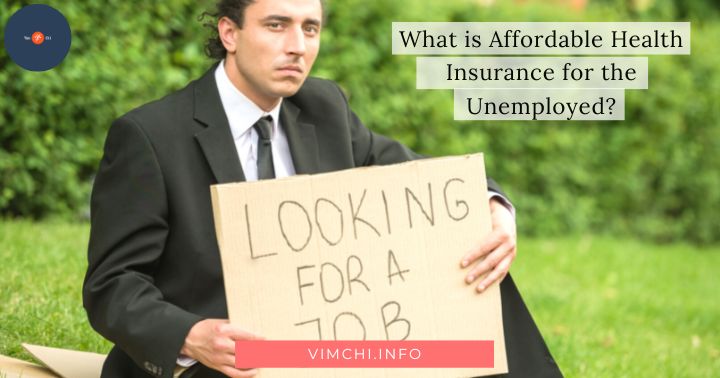
COBRA (Consolidated Omnibus Budget Reconciliation Act) continuation coverage is a federal law that allows you to keep your employer-sponsored health insurance for a limited time after you lose your job, if you meet certain eligibility requirements. This can be a valuable option if you are between jobs or are facing a health issue and need continued coverage.
Eligibility for COBRA
To be eligible for COBRA, you must meet the following criteria:
- You must have lost your health insurance due to a qualifying event, such as job loss, reduction in work hours, death of the employee, divorce, or a change in your employment status.
- You must have been covered under the employer’s health insurance plan at the time of the qualifying event.
- Your employer must have at least 20 employees.
COBRA Continuation Coverage Costs
COBRA continuation coverage is not free. You will be responsible for paying the full premium cost of your health insurance, plus a small administrative fee. The premium cost is typically higher than what you paid when you were employed, as your employer was contributing a portion of the premium cost.
Pros and Cons of COBRA Continuation Coverage
-
Pros:
- Provides uninterrupted health insurance coverage, avoiding gaps in coverage that could result in higher costs or denial of coverage in the future.
- Offers the same health insurance plan and benefits you had while employed, allowing you to keep your existing doctors and specialists.
-
Cons:
- Can be significantly more expensive than other health insurance options, such as individual plans on the ACA Marketplace.
- The coverage period is limited, typically 18 months, although it can be extended in some cases.
- You may have to pay the entire premium cost, which can be a financial burden, especially if you are unemployed.
Short-Term Health Insurance Plans
Short-term health insurance plans are temporary policies that provide coverage for a limited period, typically ranging from one to twelve months. These plans are often marketed as an alternative to traditional health insurance, especially for individuals who are between jobs or facing a gap in coverage. However, it’s crucial to understand the features, limitations, and potential drawbacks of short-term health insurance plans before making a decision.
Features and Limitations of Short-Term Health Insurance Plans
Short-term health insurance plans offer a more affordable alternative to traditional health insurance, but they come with several limitations.
- Limited Coverage: These plans generally have more limited coverage than ACA-compliant plans, often excluding pre-existing conditions, essential health benefits, and preventive care services.
- Shorter Duration: As the name suggests, short-term plans are designed for temporary coverage and typically have a maximum duration of 12 months.
- Renewal Restrictions: Renewal of short-term plans is often subject to restrictions, and insurers may decline to renew the policy based on factors like health status or claims history.
- Limited Network: Short-term plans may have a limited network of providers, making it challenging to access care from preferred doctors or hospitals.
- Higher Out-of-Pocket Costs: These plans often have higher deductibles, copayments, and coinsurance, leading to potentially higher out-of-pocket costs for individuals.
Potential Benefits and Drawbacks for Unemployed Individuals
For unemployed individuals, short-term health insurance plans may seem appealing due to their lower premiums. However, it’s essential to consider the potential benefits and drawbacks:
Benefits
- Lower Premiums: Short-term plans often have lower premiums compared to ACA-compliant plans, making them a more affordable option for individuals with limited income.
- Temporary Coverage: They provide temporary coverage for individuals facing a gap in health insurance, such as during a period of unemployment.
Drawbacks
- Limited Coverage: The limited coverage of short-term plans may not adequately address the health needs of unemployed individuals, who may be more susceptible to health issues due to stress and financial strain.
- Higher Out-of-Pocket Costs: Higher deductibles and copayments can pose a significant financial burden for unemployed individuals, who may already be facing financial challenges.
- Renewal Uncertainty: The uncertainty surrounding renewal can create anxiety and stress for unemployed individuals, who need reliable health insurance coverage during a vulnerable time.
Differences from ACA-Compliant Plans
Short-term health insurance plans differ significantly from ACA-compliant plans in several key aspects:
- Coverage: ACA-compliant plans offer comprehensive coverage, including essential health benefits like preventive care, maternity care, and prescription drugs. Short-term plans often have limited coverage and may exclude pre-existing conditions.
- Duration: ACA-compliant plans are designed for long-term coverage, while short-term plans are temporary, typically lasting for a year or less.
- Renewability: ACA-compliant plans are guaranteed renewable, meaning that insurers cannot deny renewal based on health status. Short-term plans may have restrictions on renewal.
- Consumer Protections: ACA-compliant plans are subject to consumer protections, such as protections against discrimination based on health status. Short-term plans may not offer these protections.
Community Health Centers and Free Clinics: Can You Get Free Health Insurance If You Are Unemployed
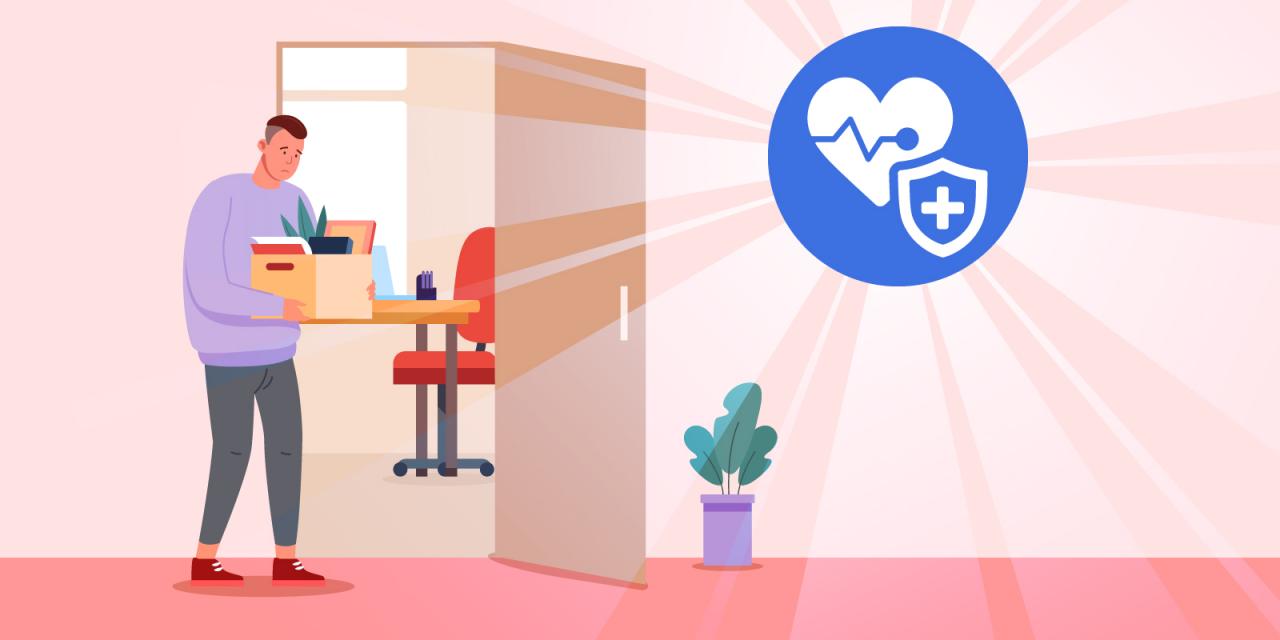
If you’re struggling to afford health insurance and don’t qualify for government-funded programs, community health centers and free clinics might be a good option for you. These organizations offer affordable or free healthcare services to people in need, regardless of their income or insurance status.
Services Offered by Community Health Centers and Free Clinics
Community health centers and free clinics provide a wide range of healthcare services, including:
- Primary care (checkups, vaccinations, chronic disease management)
- Dental care
- Mental health services
- Substance abuse treatment
- Women’s health services
- Prescription assistance
The specific services offered vary by clinic, so it’s important to contact the clinic directly to inquire about their services and eligibility requirements.
Eligibility Criteria for Community Health Centers and Free Clinics
Most community health centers and free clinics have sliding-scale fees based on income and family size. Some clinics may also offer free services to people who meet certain eligibility criteria, such as:
- Being uninsured
- Having a low income
- Being pregnant
- Having a disability
It’s important to note that eligibility requirements vary by clinic, so it’s always best to contact the clinic directly to confirm their specific requirements.
Locating Community Health Centers and Free Clinics
There are several resources available to help you locate community health centers and free clinics in your area:
- The National Association of Community Health Centers (NACHC): The NACHC website has a directory of community health centers across the country. You can search by state, county, or zip code to find centers near you.
- The National Health Service Corps (NHSC): The NHSC website has a directory of health centers that participate in the NHSC program, which provides scholarships and loan repayment to healthcare professionals who work in underserved areas.
- The United Way: The United Way website has a directory of local resources, including community health centers and free clinics.
- Local health departments: Your local health department may also have a list of community health centers and free clinics in your area.
State-Specific Programs and Resources
Many states have programs specifically designed to assist unemployed individuals with healthcare access. These programs can provide subsidies, financial assistance, or access to healthcare services.
State-Specific Programs
The availability and details of these programs vary significantly by state. Some states offer programs that provide subsidies to help unemployed individuals afford health insurance premiums, while others offer programs that provide direct financial assistance for healthcare expenses. Many states also have programs that offer free or low-cost healthcare services to low-income individuals, regardless of their employment status.
- California: The Covered California program offers financial assistance to help individuals purchase health insurance through the ACA marketplace. The state also has a program called Healthy Families, which provides health insurance to children from low-income families.
- New York: The Essential Plan in New York offers affordable health insurance to low-income individuals, regardless of their employment status. The state also has a program called Family Health Plus, which provides health insurance to children and adults from low-income families.
- Texas: Texas has a program called the Texas Health Steps program, which provides health insurance to children from low-income families. The state also has a program called the Texas Women’s Health Program, which provides health insurance and healthcare services to low-income women.
Accessing State Programs
To access these state programs, you will typically need to provide proof of your income and residency. You may also need to provide other documentation, such as proof of your unemployment status. The specific requirements will vary by state and program.
- Contact your state’s health insurance marketplace: The ACA marketplace is a good starting point to find information about state-specific programs. You can visit the website or call the customer service number to learn about the programs available in your state.
- Contact your state’s department of health or social services: These agencies can provide information about state-specific programs and resources. They can also help you determine your eligibility for these programs.
- Contact a local community health center or free clinic: These organizations can provide information about state programs and may also offer free or low-cost healthcare services.
Eligibility Requirements
Eligibility requirements for state programs vary. Generally, these programs are designed for individuals with low income, but the specific income thresholds vary by state and program. Some programs may also have other eligibility requirements, such as residency or citizenship status.
Ending Remarks
Losing your job can be a challenging experience, but it doesn’t have to mean losing your health insurance. By exploring the resources and programs Artikeld in this guide, unemployed individuals can find solutions to maintain their health insurance coverage and access essential healthcare services. Whether you qualify for government-funded programs, can utilize the ACA Marketplace, or explore community health centers and free clinics, there are options available to help you navigate this period and prioritize your health and well-being.
Commonly Asked Questions
Can I get free health insurance if I’m unemployed and have no income?
You may be eligible for Medicaid, a government-funded health insurance program for low-income individuals and families.
What if I’m unemployed but have a part-time job?
You may still qualify for Medicaid or other programs based on your income level.
Can I get health insurance through the ACA Marketplace if I’m unemployed?
Yes, the ACA Marketplace offers health insurance plans to individuals regardless of employment status. You may also be eligible for subsidies to help with the cost of premiums.
How long can I keep my employer-sponsored health insurance after losing my job?
You may be able to continue your employer-sponsored health insurance through COBRA for a limited time, but you will be responsible for paying the full premium cost.
